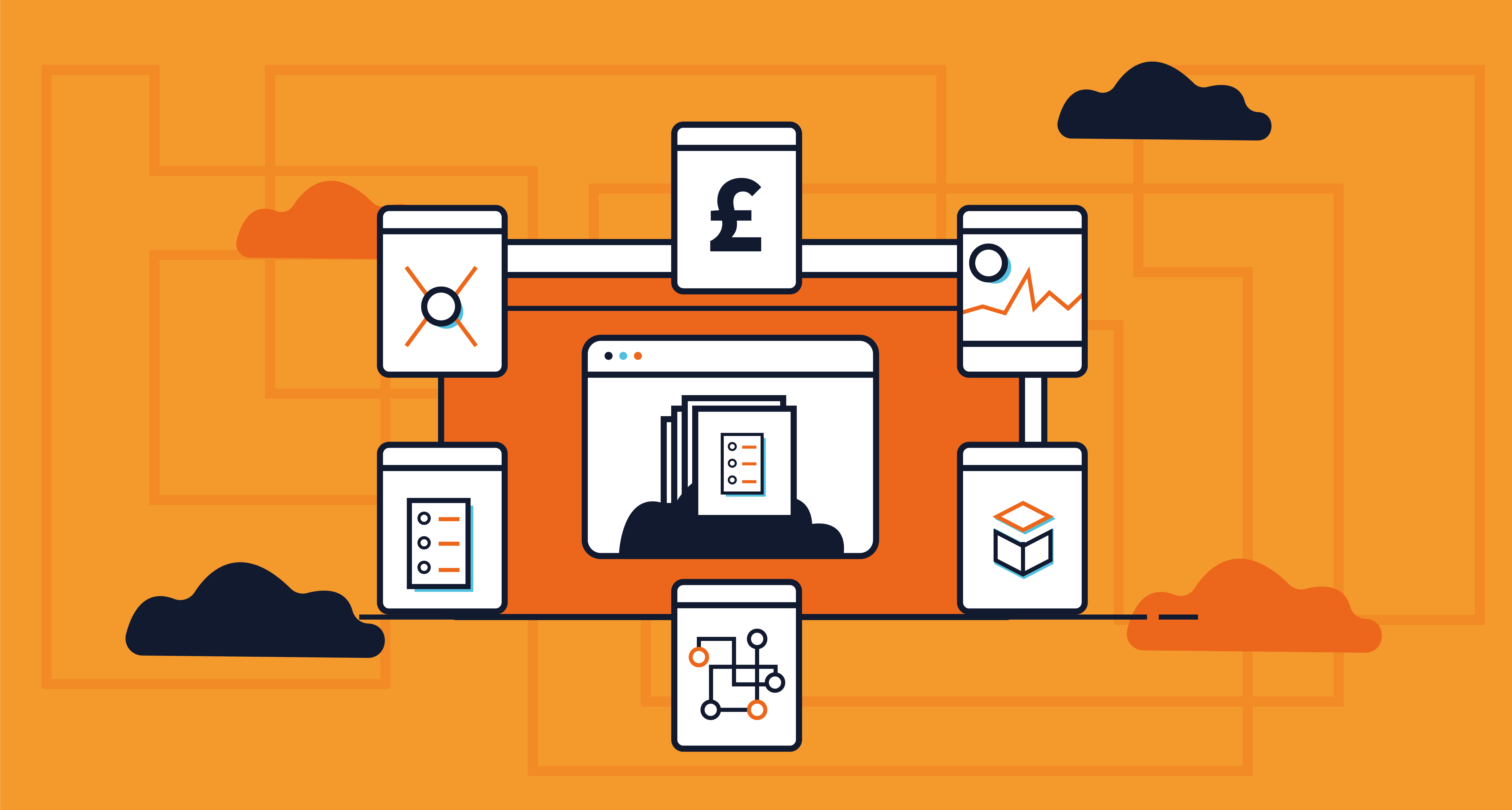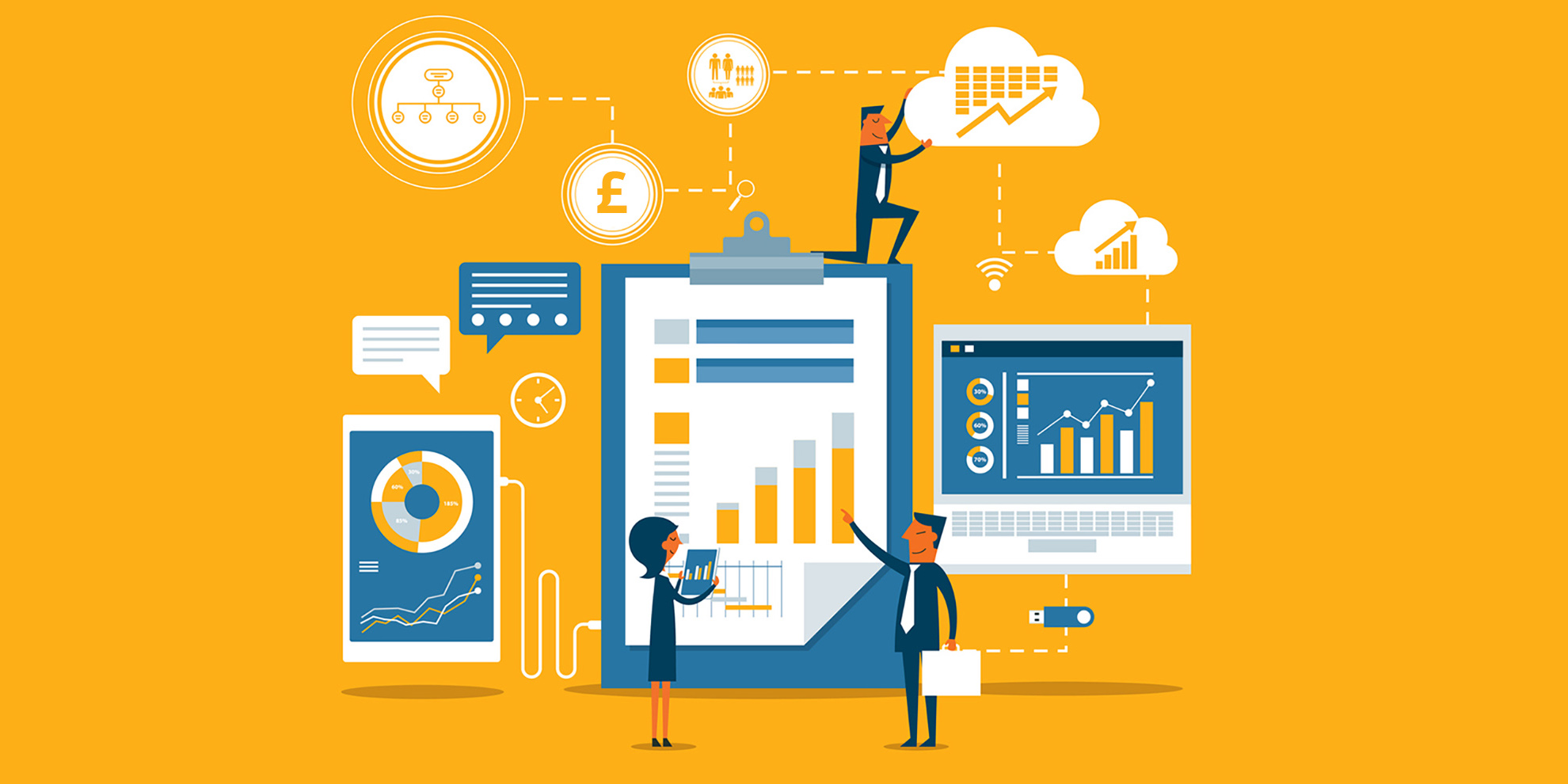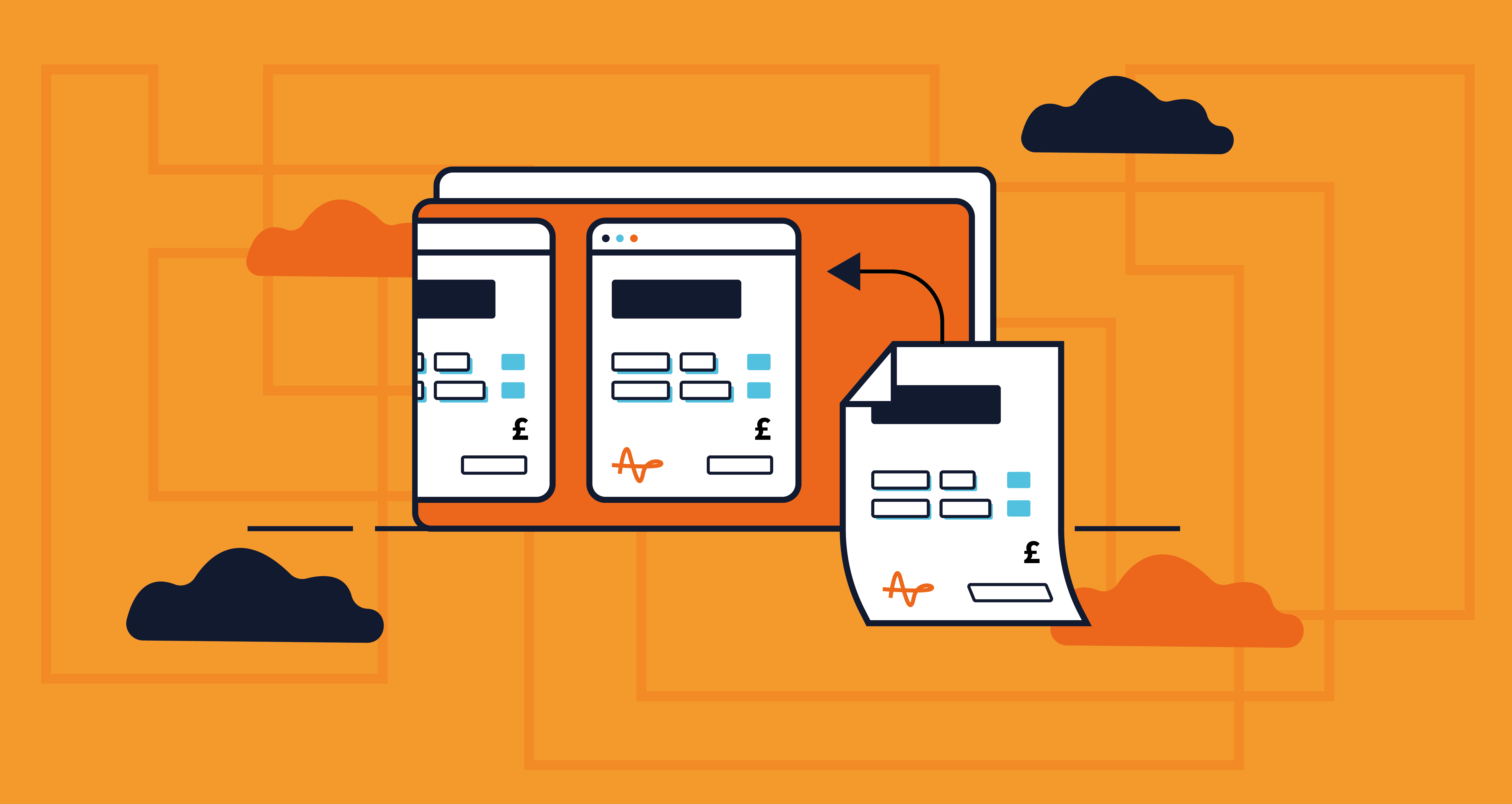Your ERP (Enterprise Resource Planning) system supports essential business functions like sales forecasting, stock management and invoicing - to name just a few. So, making sure your system is the best version of itself is pretty important, right?

In the last few years ERPs have rapidly matured. Alongside that, so has the way we interact with technology and each other at work. This technological evolution of the cloud has had a transformative effect on today’s modern workplace, enabling people to work anywhere, any time, and on any device.
Whether the time is right for businesses to move their ERP to the cloud is a business decision that will be impacted by your objectives, structure and strategy. In this blog, we look at the benefits of ERP in the cloud and consider the processes that can be optimised, accelerated and improved with a cloud-based ERP.
It’s Not Just About Being in the Cloud
The cloud offers a whole range of potential for your businesses to reduce manual processes and improve the level of customer service you offer. But not all cloud platforms are built the same – and its vital to choose the right one for your business.
You can’t expect to move a siloed and heavily customised ERP system to the cloud and expect it to work perfectly. Simply being in the cloud won’t remove the challenges that your platform has historically presented. That’s why it’s vital to go back to the drawing board and consider a new and better cloud-based alternative to your current ERP.
Cloud technology offers a unique solution to a whole range of industries challenges:
Work in Real-time
A cloud-based ERP, like all cloud software, can be accessed from any device and any location, which means any changes or updates to information are updated in real-time. That means an end to emailing invoices and contracts, then waiting for them to be uploaded, saved, reviewed and approved.
In the cloud, documents like time sheets are added to the right place as soon as they are completed. As well as that invoices and contracts can be saved and reviewed the moment they're received by email, because your email system seamlessly integrates with your ERP.
Maintain One Source of the Truth
The cloud allows you to ensure that your ERP system presents you with a single objective version of all your documents and information. This is because information is updated in real-time and all your systems are properly integrated.
This means an end to multiple versions of documents, stored in disparate locations, which leads to widespread confusion about where and what the right information is. It also calls an end to the days of information being locked in static spreadsheets and email inboxes, which forces users to manually combine, compare and verify the data before inputting it into the right shared area.
A cloud-based ERP allows you to create a single platform that stores, shares and uses your organisation’s operational and functional data, which is automatically updated and made freely accessible between departments.
Data Scalability
In contrast to on-premises ERP systems, ERP platforms in the cloud offer businesses a higher level of responsiveness and scalability. Monthly subscription services enable organisations to use only the space and computing power that they need. This ensures that scaling up is quick and easy.
Save time and money by eliminating costly and unpredictable server upgrades and accommodate considerably more data. With the cloud, a simple request to your SaaS provider allows you to increase your usage on a monthly basis. On the flipside, you can also save money by quickly scaling your subscription down in periods of low usage or consumer demand.
Rolling Updates
With an on-premises solution, it’s your IT team’s job to manually identify, roll out and implement patches and updates. The reality is that your IT team probably has more important things to be doing. With cloud-based software, updates are rolled out by your SaaS provider, with updates all seamlessly updated to your environment.
One of the biggest benefits of this is the amount of time your IT team saves by no longer having to manually update and maintain the on-premises software. This means they can focus on more critical, value-adding work.
Faster Software Implementation
Cloud-based systems are quicker and easier to roll out than traditional on-premises software, and ERPs are no exception. This removes the difficulty of fiddling with a complicated and lengthy software implementation. In the cloud, businesses can focus on change management and adoption, ensuring that the new system gets end-user buy-in and delivers real benefits to the organisation.
Reduced Costs
Cloud-based software is generally less expensive than on-premises alternatives, making price and total cost of ownership a main selling point. As well as this, the fact that it’s charged as a monthly subscription enables businesses to spread the cost over time and reduces the burden and on your IT team’s time.
Does that mean deciding to host your ERP in the cloud is going to be cheap? Not necessarily, especially if you are using a heavily siloed and customised legacy ERP that’s no longer fit for purpose.
But the cost savings become more apparent in the long term, through lower burdens on your IT staff, better workforce productivity, and improved integrity, accuracy and accessibility of data. This all points towards a cost-benefit for businesses which decide to make the move into the cloud.
Is Your Business Ready for ERP in the Cloud?
When it comes to workplace technology, many organisations take the following attitude: If a solution has worked ‘OK’ for years, why rock the boat? But if your competitors are finding new ways to boost productivity and reduce costs by investing in new technology, it’s vital to keep up. With the rise of the cloud, a whole new world is possible. A world where cloud-based ERP streamlines how your business is run and what you can achieve.
To make the most of this, you need to consider how your ERP processes are slowing your organisation down and how new cloud-based technology, like Microsoft Dynamics 365 Business Central, can take your business to the next level.
Ensuring that you choose the right ERP solution for your business is just as crucial as ensuring you have the right partner to help you do it.
Make ERP in the Cloud a Reality With IT Lab
With Dynamics 365 Business Central together with IT Lab’s deep Microsoft expertise in designing and delivering cloud-based ERPs you have access to the tools and knowledge you make your ERP in the cloud a reality. If you want to find out more, get in contact with one of our specialist ERP consultants today.





